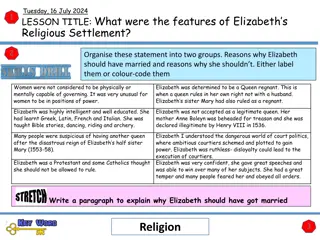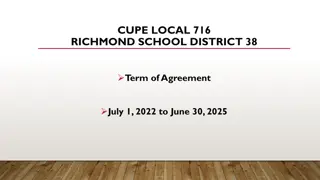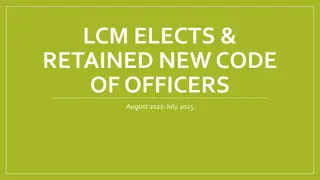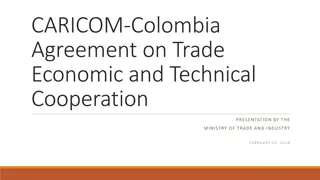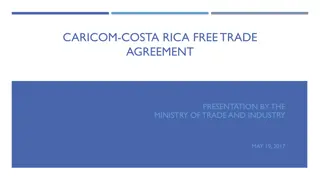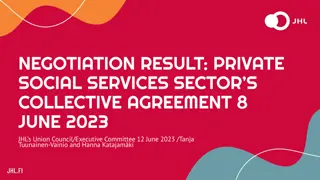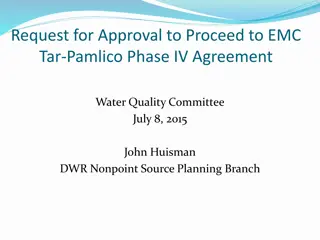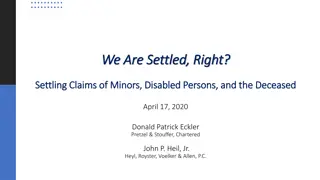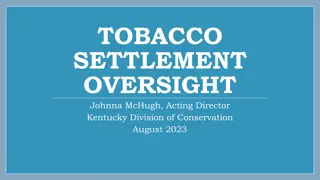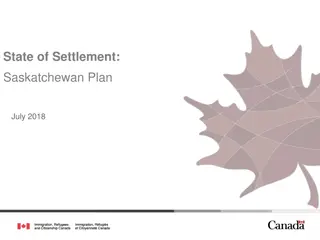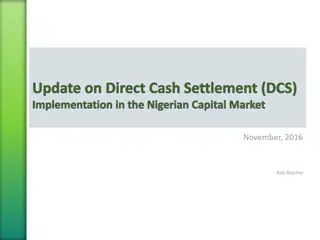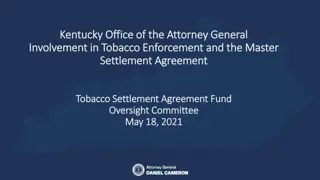Marsters v. Healey: Understanding the Landmark Settlement Agreement
Marsters v. Healey is a significant lawsuit advocating for individuals with disabilities in nursing facilities to access community residential services. The Settlement Agreement aims to provide support for those who wish to transition to community living, addressing the needs of diverse populations. This landmark case emphasizes the importance of inclusivity and equality in healthcare services.
Download Presentation

Please find below an Image/Link to download the presentation.
The content on the website is provided AS IS for your information and personal use only. It may not be sold, licensed, or shared on other websites without obtaining consent from the author. Download presentation by click this link. If you encounter any issues during the download, it is possible that the publisher has removed the file from their server.
E N D
Presentation Transcript
BRINGING PEOPLE HOME Understanding the Settlement Agreement in Marsters v. Healey Steven Schwartz Kathy Walker Center for Public Representation
Marsters v. Healey Marsters v. Healey is a lawsuit filed by seven individuals with disabilities living in nursing facilities and the Mass Senior Action Council against the Commonwealth of Massachusetts They brought this case on behalf of thousands of people in nursing facilities who want to return to the community, but needed support from the State to do so After lengthy negotiations, the Commonwealth and Plaintiffs reached a Settlement Agreement to provide services so that everyone who wants to can come home 2
The Goal of the Case The case sought to require the State to provide community residential services and supports for individuals with medical conditions, physical disabilities, and mental illness who want to leave nursing facilities to live in the community These services include: Information and opportunities to learn about community options Assistance in leaving nursing facilities Special services in nursing facilities to support transition to the community Expanded case management services New community housing Cultural and linguistic competency training for staff . . .More on this later 3
Who Benefits? People age 22 or older and Have Medicaid or are eligible for Medicaid and Have lived in a Massachusetts nursing facility more than 60 days and Have a disability and Want to live in the community or want more information about living in the community Have a serious mental illness and need services in the nursing facility OR 4
This is a Landmark Settlement The case and Settlement Agreement is cross-disability, which means it will benefit everyone in nursing facilities regardless of the type of disability they may have The Agreement specifically addresses the disproportionate impact of unnecessary institutionalization on people of color and seeks specific remedies to address this disparity 5
The Approval Process Settlement Agreements like this one must be approved by a Judge Preliminary Approval Notice Period Fairness Hearing Final Approval Key Dates: April 22: Judge Gorton preliminarily approved the Settlement May 31: Deadline for objections to be filed June 17: Fairness Hearing at 3:00 p.m. in Boston Unknown: Judge Gorton s decision about final approval of the Agreement 7
Notice Period Notice Period Preliminary Approval Fairness Hearing Final Approval The Notice (included in your materials) has been distributed to all nursing facilities in the State and published in several newspapers We encourage all interested people in nursing facilities to ask questions and express opinions about the Settlement. 8
Notice Period Notice Period Preliminary Approval Fairness Hearing Final Approval You are part of the Notice plan! Residents and other interested parties can call to ask questions, and we hope you can help talk about the Settlement Agreement We hope you will: Answer questions as you are able. Refer to CPR and GBLS for questions you can t answer. Refer residents hoping to move to their local ASAP for CTLP case management services. 9
THE SERVICES 10
Comprehensive Case Management Services: In-reach, informed choice, and transition planning for all people with disabilities in nursing facilities Includes a new in-reach program that provides monthly in-person case management meetings with individual residents to offer: Information in people s primary language Opportunities to explore community living including visits Support to make an informed choice about whether to move, including engaging chosen supporters Transition planning and assistance 11
Comprehensive Case Management Services: Comprehensive Case Management Services may come from one of three programs (but everyone gets someone!) Community Transition Liaison Program ( CTLP ) Administered by EOEA, and provided by the ASAPs Money Follows the Person Program Operated by EOHHS Office of MassHealth Behavioral Health Community Partners (BH CP) and DMH Case Managers Operated by DMH, they coordinate 12
Behavioral Health Services Provision and coordination of behavioral health specialized services for people with PASRR SMI or a history of PASRR SMI. Includes: Assessment and behavioral health care plans Provision of services Including specialized services, behavioral health, and rehabilitative services identified in the PASRR Level II evaluation Referrals as necessary Opportunity to participate in community Clubhouses 13
Residential Services and Supports At least 2,400 class members to transition to the community residential settings with supports over 8 years under the Agreement Supported community residential settings include: Provider-operated group homes 400 additional MFP-RS waiver slots At least 200 additional beds in DMH Group Living Environments 14
Residential Services and Supports (2) Non-residential services with housing supports (including housing search) for people who lack housing 595 additional MFP-CL waiver slots 320 additional Rental Subsidy Program slots 800 additional subsidized housing opportunities targeted to elder and disabled MassHealth Members (mobile and project-based) Home modifications for people with existing housing with accessibility barriers At least 120 home modifications up to $50,000 for MFP-CL or MFP Demo participants 15
Residential Services and Supports Transition timeframes for people transitioning to: a provider-operated setting such as a group home, within 18 months their own home or apartment in the community and who need housing search: within 12 months their own home or apartment in the community and who already have housing: within 9 months (absent reasonable exceptions) 16
Other Provisions Cultural and Linguistic Competency: All services will be provided in a manner that reflects primary language and cultural background. Data Sharing: quarterly data reports to mark progress Implementation: Implementation coordinator appointed by EOHHS and periodic monitoring by the plaintiffs lawyers Center for Public Representation (CPR) Greater Boston Legal Services (GBLS) Justice in Aging (JIA) Dispute resolution and court oversight 17
QUESTIONS? Call CPR: 413-341-5111 Call GBLS: 617-603-2716 www.centerforpublicrep.org 18
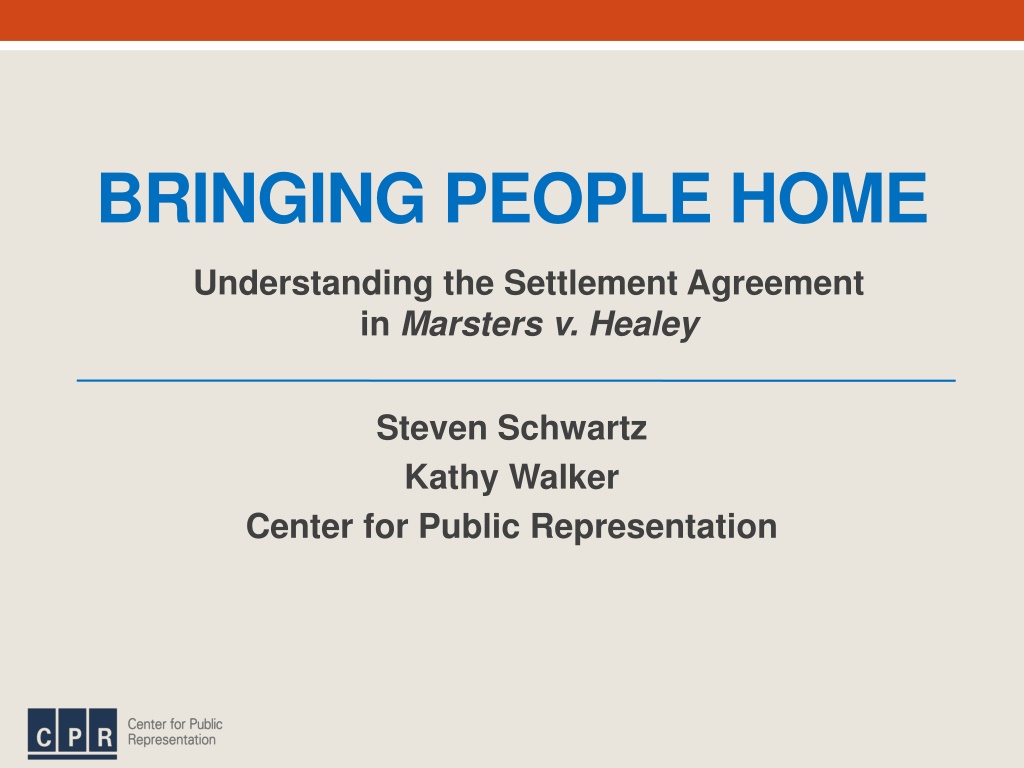


![❤[PDF]⚡ Apollo Mission Control: The Making of a National Historic Landmark (Spr](/thumb/21551/pdf-apollo-mission-control-the-making-of-a-national-historic-landmark-spr.jpg)



